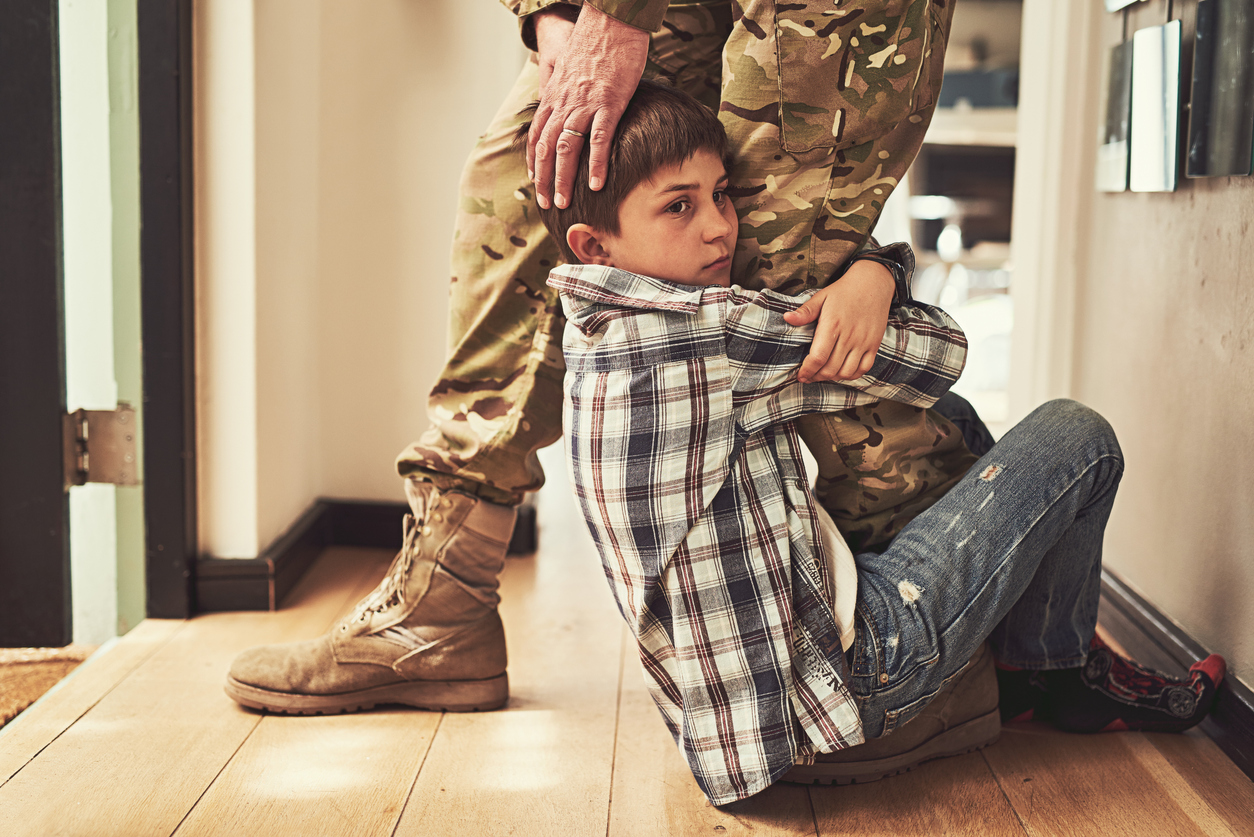10 Ways to Support Your Childs LGBTQ+ Friends
Support your child’s LGBTQ+ friends by educating yourself on LGBTQ+ issues, encouraging open communication, and fostering a safe and inclusive environment. Attend LGBTQ+ events, advocate for LGBTQ+ rights, offer emotional support, and respect pronouns and identities. Promote LGBTQ+ representation and be an active ally by engaging in community involvement. Your efforts will create a supportive atmosphere where everyone feels valued and understood.
Key Takeaways
- Educate yourself on LGBTQ+ terminology and history to better understand and support your child’s friends.
- Encourage open communication by creating a safe space for discussions and validating feelings.
- Attend LGBTQ+ events and advocate for rights to show support and solidarity.
- Offer emotional support by providing a supportive environment and respecting identities.
- Promote LGBTQ+ representation and be an active ally by standing up against discrimination and taking tangible actions.
Educate Yourself on LGBTQ+ Issues
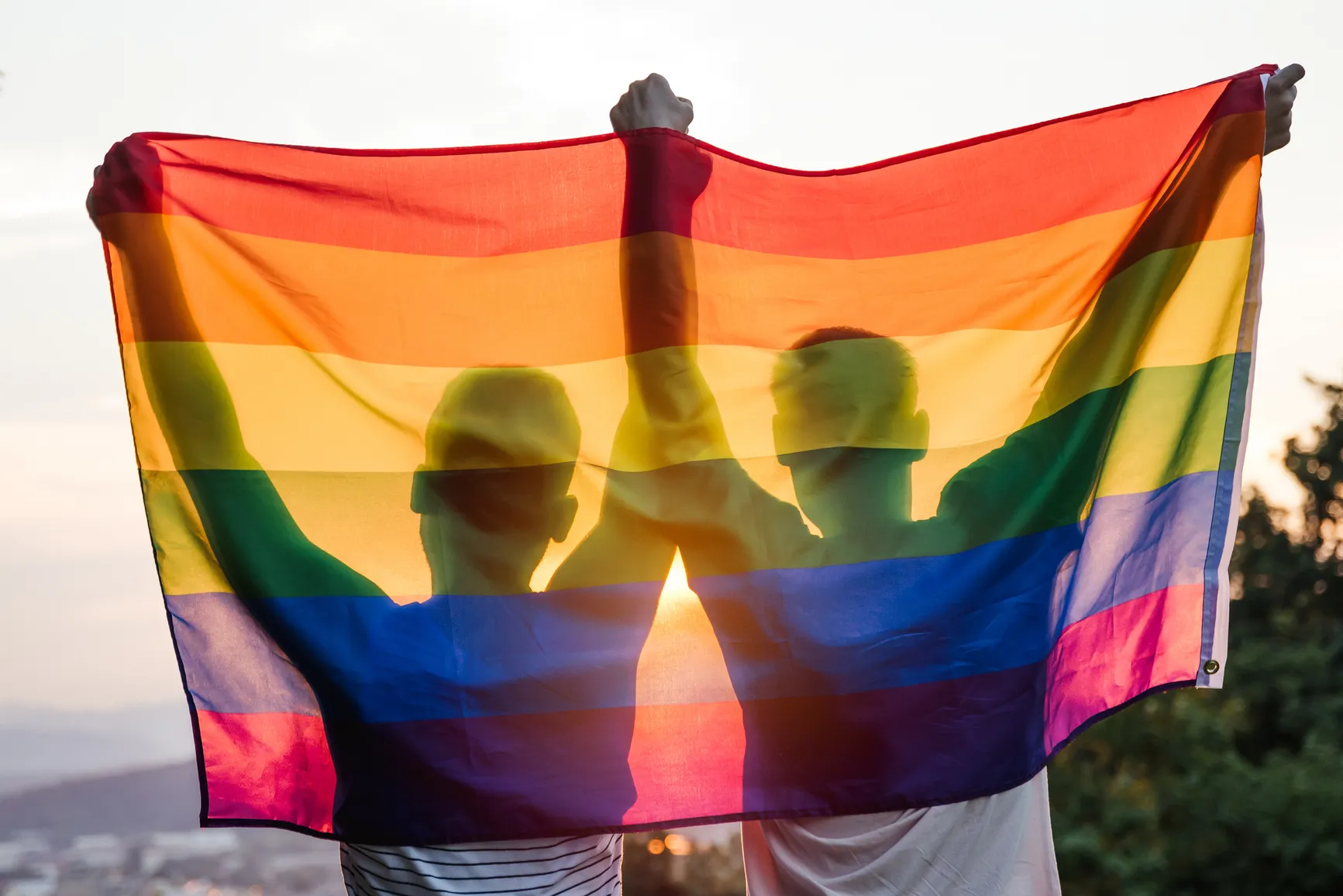
To support your child’s LGBTQ+ friends effectively, educating yourself on LGBTQ+ issues is essential. Understanding LGBTQ+ terminology is a critical first step. Terms like ‘non-binary,’ ‘pansexual,’ and ‘genderqueer‘ may be unfamiliar, but learning their meanings will help you better comprehend and respect your child’s friends’ identities.
Delving into LGBTQ+ history can also provide valuable insights. Learning about the Stonewall Riots, the AIDS crisis, and the fight for marriage equality offers a broader understanding of the challenges and triumphs the LGBTQ+ community has faced. This knowledge can help you appreciate the struggles your child’s friends may have encountered and the progress that has been made.
Encourage Open Communication
Encouraging open communication with your child about their LGBTQ+ friends is essential for fostering understanding and acceptance within your family dynamic. Creating a supportive environment where active listening and open dialogue are encouraged can help your child feel comfortable discussing their friends’ experiences and feelings.
It’s important to initiate honest conversations with your child, allowing them to ask questions and express any concerns they may have. Active listening plays an important role in these conversations. When your child shares information about their LGBTQ+ friends, listen attentively without judgment.
Validate their feelings and experiences, showing empathy and understanding. This approach helps your child feel supported and encourages them to continue sharing openly with you.
Foster a Safe and Inclusive Environment

Creating a safe space for your child’s LGBTQ+ friends is essential for their well-being and comfort.
By promoting inclusivity, you can help foster an environment where everyone feels accepted and respected.
Your support and actions will go a long way in making a positive impact on the lives of these individuals.
Safe Space Creation
Establishing a supportive and inclusive atmosphere is essential in ensuring your child’s LGBTQ+ friends feel welcomed and respected. To create a safe space for them, consider organizing safe space activities where everyone can openly express themselves without fear of judgment.
Encourage community support by involving neighbors, friends, and local organizations in promoting acceptance and understanding. Additionally, hosting acceptance workshops can educate both children and adults on LGBTQ+ issues, fostering empathy and compassion.
These workshops can provide valuable insights and tools to help everyone become better allies. Make use of LGBTQ+ resources such as books, websites, and local support groups to further educate yourself and those around you.
Inclusivity Promotion
How can you actively promote inclusivity and foster a safe and welcoming environment for your child’s LGBTQ+ friends?
One way is to organize inclusive celebrations that recognize and honor the LGBTQ+ community. By hosting events like Pride parties or LGBTQ+ history month gatherings, you not only show your support but also create a space where your child’s LGBTQ+ friends feel seen and valued.
Engaging in LGBTQ+ outreach programs can also help promote inclusivity. Encouraging your child to participate in activities that support the LGBTQ+ community, such as volunteering at LGBTQ+ organizations or attending LGBTQ+ pride events, can foster a sense of belonging and acceptance.
Supportive environments can be further cultivated by attending acceptance workshops or seminars. These platforms provide valuable education on LGBTQ+ issues and help you better understand how to be an ally. By actively seeking out knowledge and resources, you demonstrate your commitment to creating a safe and inclusive space for your child’s LGBTQ+ friends.
Attend LGBTQ+ Events Together
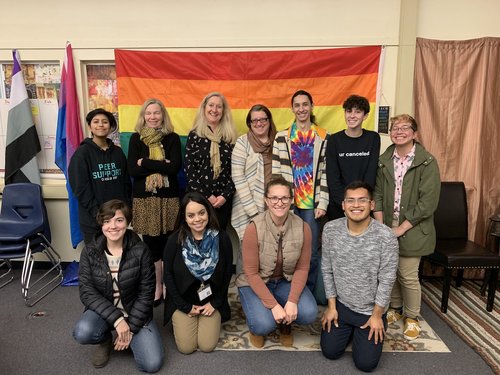
Supporting your child’s LGBTQ+ friends can be a meaningful experience by actively participating in LGBTQ+ events together. Attending Pride parades, community events, LGBTQ+ support groups, and workshops can show your child’s friends that you’re a supportive ally.
Pride parades are vibrant celebrations of love and acceptance, providing a platform for LGBTQ+ individuals and allies to come together and show solidarity. Community events offer opportunities to engage with the LGBTQ+ community and learn more about their experiences.
LGBTQ+ support groups and workshops can be invaluable spaces for sharing stories, gaining knowledge, and fostering understanding.
Advocate for LGBTQ+ Rights
It’s important to advocate for LGBTQ+ rights by supporting legal protections for the community and advocating for inclusive education policies.
By standing up for equal rights and opportunities, you’re helping create a safer and more inclusive world for LGBTQ+ individuals.
Your support can make a significant impact in the fight for equality and acceptance.
Legal Protections for LGBTQ
Ensuring legal protections for LGBTQ individuals is essential in advocating for their rights and ensuring equality and fairness in our society. Workplace discrimination remains a significant issue for LGBTQ employees, with many facing harassment or being denied job opportunities based on their sexual orientation or gender identity. Legal safeguards are vital to prevent such discrimination and create inclusive work environments where everyone can thrive.
Additionally, healthcare access is a fundamental right that LGBTQ individuals often struggle to secure. Many face barriers to receiving proper medical care, including discrimination from healthcare providers or insurance companies. Legal protections can help guarantee equal access to healthcare services for LGBTQ individuals, ensuring they receive the support and treatment they need without fear of discrimination.
Inclusive Education Policies
To further advocate for LGBTQ+ rights, promoting inclusive education policies is essential in fostering a safe and supportive environment for all students, regardless of their sexual orientation or gender identity. Policy implementation plays a critical role in ensuring that schools have guidelines in place to protect and support LGBTQ+ students. By actively engaging with the community, schools can create a more inclusive atmosphere that celebrates diversity.
Parent involvement is crucial in shaping inclusive education policies. Parents can advocate for LGBTQ+ inclusive curriculums and support school initiatives that promote acceptance and understanding. Working together with educators and administrators, parents can help drive positive changes within the school system.
Curriculum development is another important aspect of promoting LGBTQ+ rights in education. Schools should aim to incorporate diverse perspectives and histories, including LGBTQ+ contributions, into their teaching materials. By doing so, students can gain a more thorough understanding of the world around them and develop empathy and respect for all individuals, regardless of their sexual orientation or gender identity.
Challenge Stereotypes and Discrimination
Challenge stereotypes and discrimination by actively promoting understanding and acceptance of LGBTQ+ individuals among your child’s peers. Start by challenging assumptions and combatting discrimination whenever you encounter them. Encourage your child to speak up against derogatory remarks or jokes about LGBTQ+ individuals. Teach them about the harmful effects of stereotypes and discrimination, emphasizing the importance of respecting everyone regardless of their sexual orientation or gender identity.
Engage in open conversations with your child about LGBTQ+ issues. Provide them with accurate information and resources to help them develop a positive and accepting attitude towards their LGBTQ+ friends. Encourage them to question societal norms and stereotypes, fostering a mindset of inclusivity and empathy.
Lead by example in your interactions with others. Show respect and support for LGBTQ+ individuals in your community, demonstrating that everyone deserves to be treated with dignity and kindness. By actively challenging stereotypes and discrimination, you can create a more welcoming and accepting environment for your child and their LGBTQ+ friends.
Offer Emotional Support
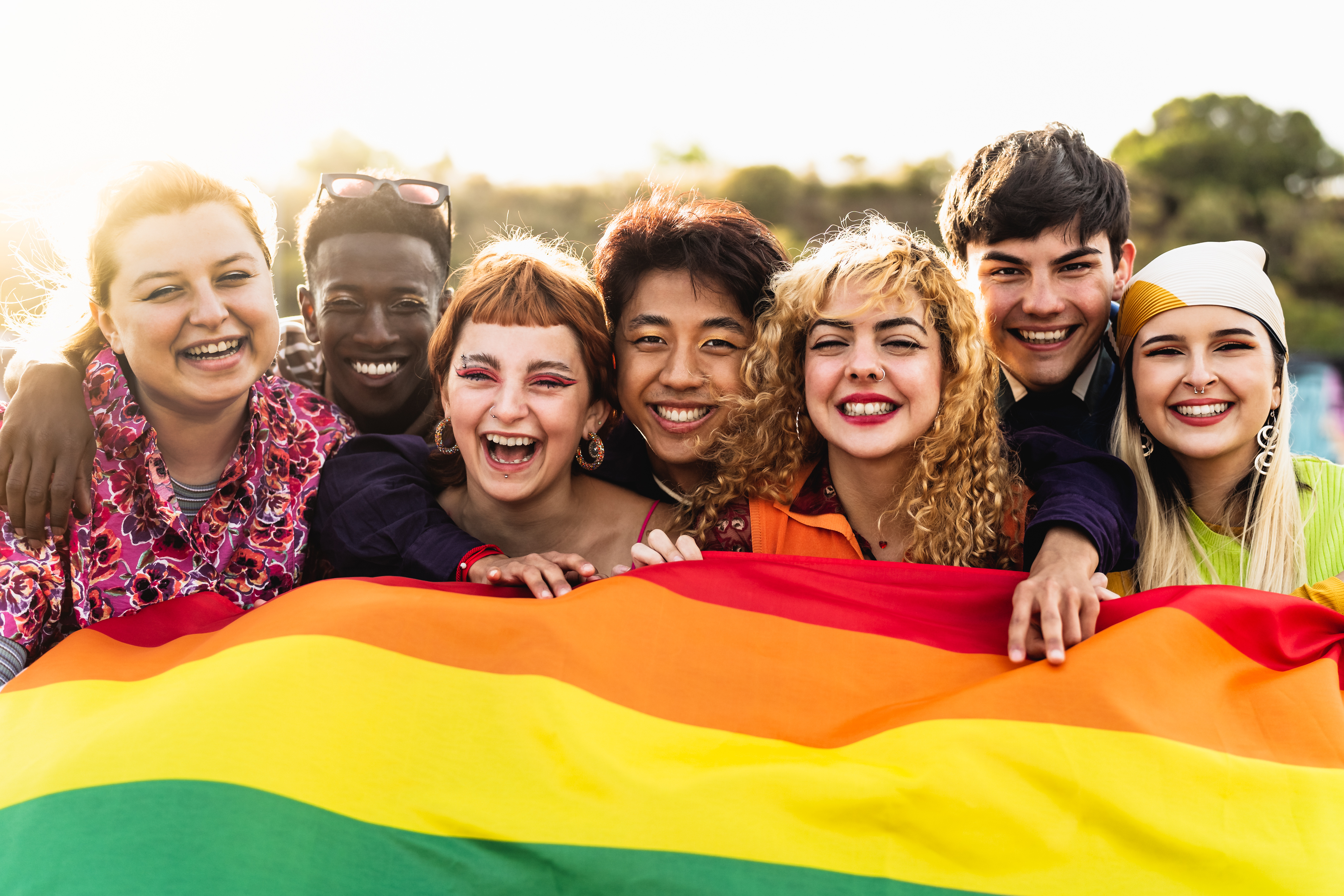
Provide a safe space for your child’s LGBTQ+ friends to express themselves and offer them your unwavering emotional support. It’s essential to show validation and acceptance, letting them know that you’re there for them no matter what. Your emotional support and understanding can make a significant difference in their lives.
Listen actively when they share their feelings and experiences. Let them know that their emotions are valid and that you accept them for who they are. Creating an environment where they feel safe to be themselves is vital for their well-being.
Offer a shoulder to lean on during tough times and celebrate their joys with them. Being a source of comfort and encouragement can help them navigate the challenges they may face. Your empathy and support can have a profound impact on their mental health and overall happiness.
Respect Pronouns and Identities
Respecting your child’s LGBTQ+ friends’ pronouns and identities is essential for showing them acceptance and support in their journey of self-discovery and authenticity. Pronoun etiquette plays an important role in acknowledging and validating an individual’s gender identity. Using the correct pronouns demonstrates respect and shows that you value their identity.
Gender identities are diverse and unique to each person. By respecting your child’s LGBTQ+ friends’ identities, you create a safe and inclusive environment where they can freely express who they are. Identity validation is a powerful way to support their journey and foster a sense of belonging.
As a parent, friend, or ally, it’s important to educate yourself on LGBTQ+ terminology and pronouns. By doing so, you show that you’re committed to creating a supportive space for your child’s LGBTQ+ friends.
Promote LGBTQ+ Representation
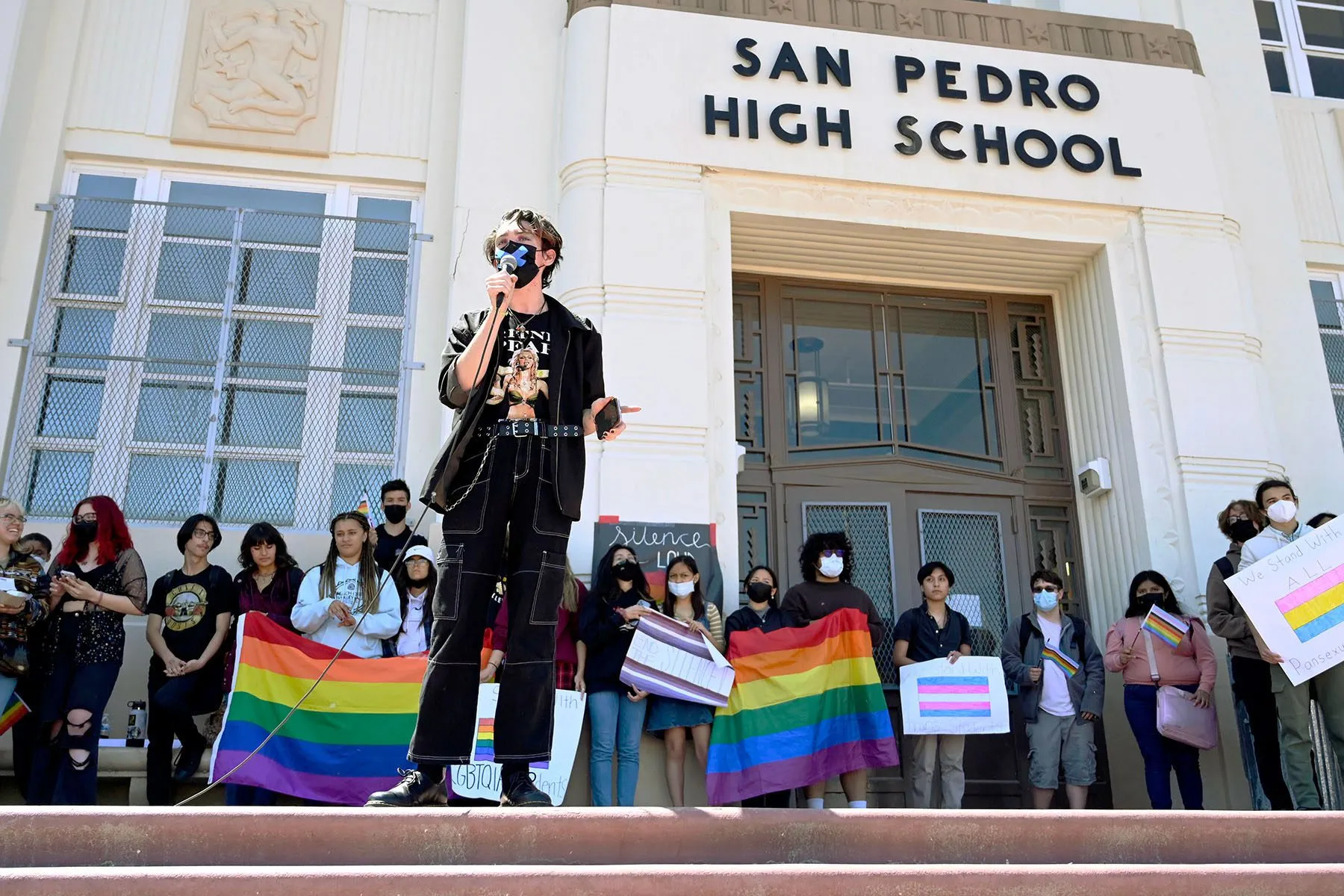
Encourage your child to explore various forms of media that showcase LGBTQ+ characters, helping them see diverse representations that reflect their friends’ identities.
Support initiatives that promote LGBTQ+ visibility in education, advocating for inclusive curriculum and resources that validate and empower LGBTQ+ students.
Diverse Media Representation
By seeking out and supporting media that features LGBTQ+ representation, you can help create a more inclusive environment for your child’s LGBTQ+ friends. Media influence plays a significant role in shaping the perceptions and acceptance of LGBTQ+ youth. When LGBTQ+ individuals are portrayed positively and authentically in movies, TV shows, books, and other forms of media, it can have a profound impact on how they’re viewed by society.
By exposing yourself and your child to diverse media representation, you not only support LGBTQ+ creators but also help normalize different sexual orientations and gender identities. This normalization fosters a sense of acceptance and understanding among viewers, including your child and their LGBTQ+ peers. When LGBTQ+ characters are portrayed in a way that reflects the diversity of real-life experiences, it can challenge stereotypes and misconceptions, promoting empathy and respect.
Therefore, actively seeking out and promoting media with LGBTQ+ representation can be a powerful way to support and advocate for the LGBTQ+ community, creating a more inclusive and welcoming environment for everyone.
Visibility in Education
To further support your child’s LGBTQ+ friends, consider advocating for increased LGBTQ+ representation and visibility in educational settings. By promoting LGBTQ+ history in school curriculums, students can learn about the significant contributions and struggles of the LGBTQ+ community throughout history.
Encouraging the inclusion of LGBTQ+ literature in reading lists can also provide diverse perspectives and narratives that resonate with LGBTQ+ students and promote understanding among their peers.
When LGBTQ+ individuals are represented in educational materials, it helps create a more inclusive and welcoming environment for all students. This representation can foster empathy, combat stereotypes, and empower LGBTQ+ students to feel accepted and valued in their school community.
Be an Active Ally
Show your support for your child’s LGBTQ+ friends by actively listening to their experiences and standing up against any discrimination or prejudice they may face. Being an active ally involves more than just passive acceptance; it requires taking tangible actions to support and advocate for the LGBTQ+ community.
Consider seeking allyship training to better understand the challenges faced by LGBTQ+ individuals and how you can help create a more inclusive environment. Engage in community involvement by participating in events or organizations that promote equality and acceptance. By educating yourself and being actively involved, you can better support your child’s LGBTQ+ friends.
Social activism plays an important role in advocating for LGBTQ+ rights. Use your voice to speak out against discrimination and injustice. Building support networks within the LGBTQ+ community and among allies can provide a safe space for sharing experiences and seeking guidance.
Being an active ally means standing up for what’s right and showing unwavering support for your child’s LGBTQ+ friends in their journey towards self-acceptance and equality.
Frequently Asked Questions
How Can I Help My Child Navigate Their Own Feelings About Lgbtq+ Issues?
You can help your child navigate their feelings about LGBTQ+ issues by providing emotional support and understanding boundaries. Offer parental guidance and encourage open communication to create a safe space for them to express themselves and ask questions.
Should I Intervene if I Witness Discrimination Towards My Child’s Lgbtq+ Friend?
If you witness discrimination towards your child’s LGBTQ+ friend, remember the power of bystander intervention. Step up, show LGBTQ+ allyship, and support their friend. Address the situation respectfully, standing against discrimination together.
Is It Okay to Ask My Child’s Lgbtq+ Friend About Their Journey?
It’s important to respect boundaries when asking about your child’s LGBTQ+ friend’s journey. By approaching with sensitivity and a genuine desire to foster understanding, you can create a supportive environment that honors their experiences.
How Can I Support My Child’s Lgbtq+ Friend Without Overstepping Boundaries?
To support your child’s LGBTQ+ friend without overstepping boundaries, it’s essential to listen actively, offer a safe space, respect their journey, and provide parental support when needed. Showing understanding and compassion goes a long way.
What Resources Can I Provide to Help My Child’s Lgbtq+ Friend Feel Supported?
You can provide your child’s LGBTQ+ friend with valuable resources like community support groups, mental health services, allyship education, and safe spaces. Offering these resources can help them feel more supported and understood in their journey.
Conclusion
Supporting your child’s LGBTQ+ friends is essential in creating a safe and inclusive environment for all. By educating yourself, fostering open communication, and advocating for LGBTQ+ rights, you’re showing your support and acceptance.
Remember to offer emotional support, respect identities, and promote representation. Be an active ally and continue to learn and grow in your understanding of LGBTQ+ issues.
Your support can make a world of difference to LGBTQ+ youth.

Hey there! 👋 I’m a proud mom and passionate writer, sharing my parenting journey. 📝 Join me as I navigate the ups and downs of motherhood, offering tips, advice, and a sprinkle of humor along the way. 🌟



